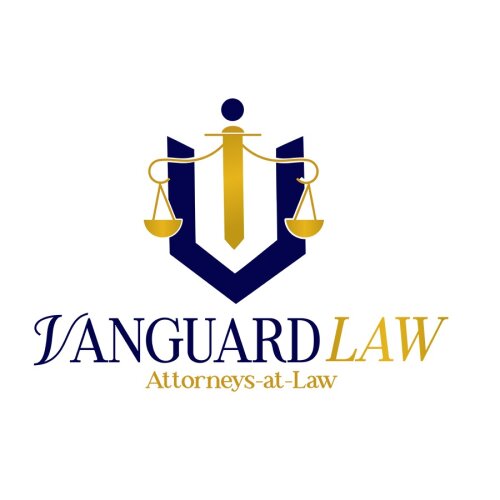Best Conveyancing Lawyers in Morant Bay
Share your needs with us, get contacted by law firms.
Free. Takes 2 min.
Free Guide to Hiring a Real Estate Lawyer
List of the best lawyers in Morant Bay, Jamaica
About Conveyancing Law in Morant Bay, Jamaica
Conveyancing is the legal process of transferring ownership of land or property from one person to another. In Morant Bay, which is in the parish of St. Thomas, conveyancing follows the same legal framework used across Jamaica. The process involves examining title documents, preparing and completing sale or transfer deeds, ensuring payment of required taxes and fees, registering the transfer with the appropriate land registry, and resolving any issues that affect the title or the property. Because land records, registration systems and local administrative practices can vary, working with a lawyer familiar with Morant Bay and St. Thomas parish procedures will help reduce risk and avoid delays.
Why You May Need a Lawyer
A lawyer experienced in conveyancing can help protect your interests at every stage. Common situations where people need legal help include:
- Buying or selling residential or commercial property.
- Refinancing or registering a mortgage.
- Transferring property between family members or as part of estate administration.
- Handling leases, long-term tenancy agreements, or lease renewal matters.
- Dealing with title defects, boundary disputes, easements, or encumbrances.
- Ensuring proper payment and calculation of stamp duty, transfer tax and registration fees.
- Completing due diligence where title history, ownership, or planning issues are unclear.
Local Laws Overview
Key legal and administrative points to know about conveyancing in Morant Bay and Jamaica generally:
- Title systems - Jamaica operates both the Torrens registration system for registered land and the deeds system for unregistered land. The Torrens system gives a certificate of title that evidences ownership, while the deeds system depends on tracing ownership through past documents.
- Registration - Transfers must be registered at the relevant land registry office or titles office. Registration secures the buyer against later claims and is usually the final step in the conveyancing process.
- Taxes and duties - Buyers and sellers must account for stamp duty, transfer tax and other fees. These taxes must be paid and evidenced before registration in many cases.
- Searches and due diligence - A lawyer will carry out searches to identify encumbrances, mortgages, caveats, liens, judgments or other interests affecting the property.
- Surveys and boundaries - Accurate land surveys and maps are important to confirm boundaries and area. Inaccurate or missing surveys can lead to disputes or registration delays.
- Mortgages and charges - Any mortgage or charge on the land must be identified and handled either by discharge or arrangement with the lender before or at completion.
- Probate and intestacy - Transfers after death require compliance with probate or letters of administration rules and may affect the time and documents required to transfer title.
Frequently Asked Questions
What does the conveyancing process generally involve?
Conveyancing normally includes drafting or reviewing the sale agreement, conducting title searches, checking for encumbrances or planning restrictions, arranging for a survey if needed, ensuring payment of taxes and fees, coordinating with lenders when there is a mortgage, preparing and executing transfer documents, and registering the transfer at the land registry.
How long does it usually take to complete a property transfer in Morant Bay?
Timeframes vary depending on factors such as whether the title is registered, the presence of mortgages or disputes, the speed of searches, and tax clearance. A straightforward transfer with registered title might take a few weeks to a couple of months. Transfers involving deeds titles, probate, or complex issues can take several months.
How much will a conveyancing lawyer charge?
Legal fees vary by firm, complexity of the matter and whether additional services are needed. Lawyers typically charge a base conveyancing fee plus disbursements for searches, stamps and registration. Ask for a written cost estimate and a clear breakdown of likely disbursements before you instruct a lawyer.
What documents should I bring when I instruct a conveyancing lawyer?
Typical documents include government-issued identification, proof of address, any existing title or deed documents, land survey reports if available, mortgage details, evidence of payment of property taxes or utility bills, and any probate or letters of administration if the property is inherited.
What is the difference between Torrens title and the deeds system?
Under the Torrens system, the land registry issues a certificate of title that records ownership and any interests on the title - this provides strong legal certainty. Under the deeds system, ownership is proved by tracing a chain of deeds and documents. Deeds-based titles may require more detailed historical searches to satisfy a buyer's lawyer.
What taxes and fees should I expect to pay?
Buyers and sellers often face several costs - stamp duty on transfer documents, transfer tax or land transfer fees, registration fees at the land registry, legal fees and disbursements, and any costs for obtaining surveys or searches. Exact rates and thresholds can change, so confirm current amounts with your lawyer or the relevant tax authority.
Can one lawyer act for both buyer and seller?
Acting for both parties can create a conflict of interest. It is generally safer for buyer and seller to have independent legal representation so each party’s interests are protected. If you are asked to agree to a single lawyer representing both sides, seek advice on whether that arrangement is appropriate and whether confidentiality or fairness could be affected.
What should I do if a title search reveals a mortgage or caveat?
If searches reveal a mortgage, charge or caveat, the lawyer will explain the nature of the encumbrance and the steps needed to clear it before registration - for example, obtaining a discharge from the lender or having the party providing the mortgage settle the debt at completion. Sometimes funds from the sale are used to pay off the mortgage on closing.
Do I need a new land survey before buying?
A current survey is strongly recommended, especially if boundaries are unclear, recent changes have been made, or the property is being subdivided. A survey shows exact boundaries and size, and helps prevent later disputes. If there is an existing reliable survey and no change to boundaries, your lawyer may advise whether a new survey is necessary.
What if the property was inherited or the owner has died?
If the property owner has died, the conveyancing lawyer will need to see probate or letters of administration showing who has authority to deal with the property. Transfers following death may require additional steps and documents, and timelines can be longer while estate administration is completed.
Additional Resources
If you need further information or official assistance, consider contacting or consulting with the following types of bodies and resources in Jamaica:
- National Land Agency or the local land registry office - for title registration and searches.
- Tax Administration Jamaica - for guidance on stamp duty, transfer tax and other tax obligations.
- Local parish council or municipal office in St. Thomas - for local planning, rates and building regulations.
- Land Survey Department or licensed land surveyors - for surveys and boundary verification.
- Jamaica Bar Association and individual law firms with conveyancing experience - to locate qualified lawyers.
- Legal Aid Council or community legal clinics - for advice if you have limited means.
Next Steps
To proceed with a conveyancing matter in Morant Bay, follow these practical steps:
- Gather essential documents: identification, current title or deed, recent tax receipts, and any surveys or mortgage papers you have.
- Choose a lawyer experienced in Jamaican conveyancing and familiar with Morant Bay or St. Thomas parish practice. Request a written fee estimate and an explanation of the process and expected timeline.
- Ask your lawyer to perform searches and to confirm whether a new survey is required.
- Clarify who will pay which taxes and fees, and arrange funds for deposit or completion as required.
- Maintain clear communication with your lawyer and any lender involved, and respond promptly to requests for information or signatures to avoid delays.
If you are unsure where to start, contact a local law firm with conveyancing experience or a legal clinic to arrange an initial consultation and get a tailored plan for your situation.
Lawzana helps you find the best lawyers and law firms in Morant Bay through a curated and pre-screened list of qualified legal professionals. Our platform offers rankings and detailed profiles of attorneys and law firms, allowing you to compare based on practice areas, including Conveyancing, experience, and client feedback.
Each profile includes a description of the firm's areas of practice, client reviews, team members and partners, year of establishment, spoken languages, office locations, contact information, social media presence, and any published articles or resources. Most firms on our platform speak English and are experienced in both local and international legal matters.
Get a quote from top-rated law firms in Morant Bay, Jamaica — quickly, securely, and without unnecessary hassle.
Disclaimer:
The information provided on this page is for general informational purposes only and does not constitute legal advice. While we strive to ensure the accuracy and relevance of the content, legal information may change over time, and interpretations of the law can vary. You should always consult with a qualified legal professional for advice specific to your situation.
We disclaim all liability for actions taken or not taken based on the content of this page. If you believe any information is incorrect or outdated, please contact us, and we will review and update it where appropriate.









